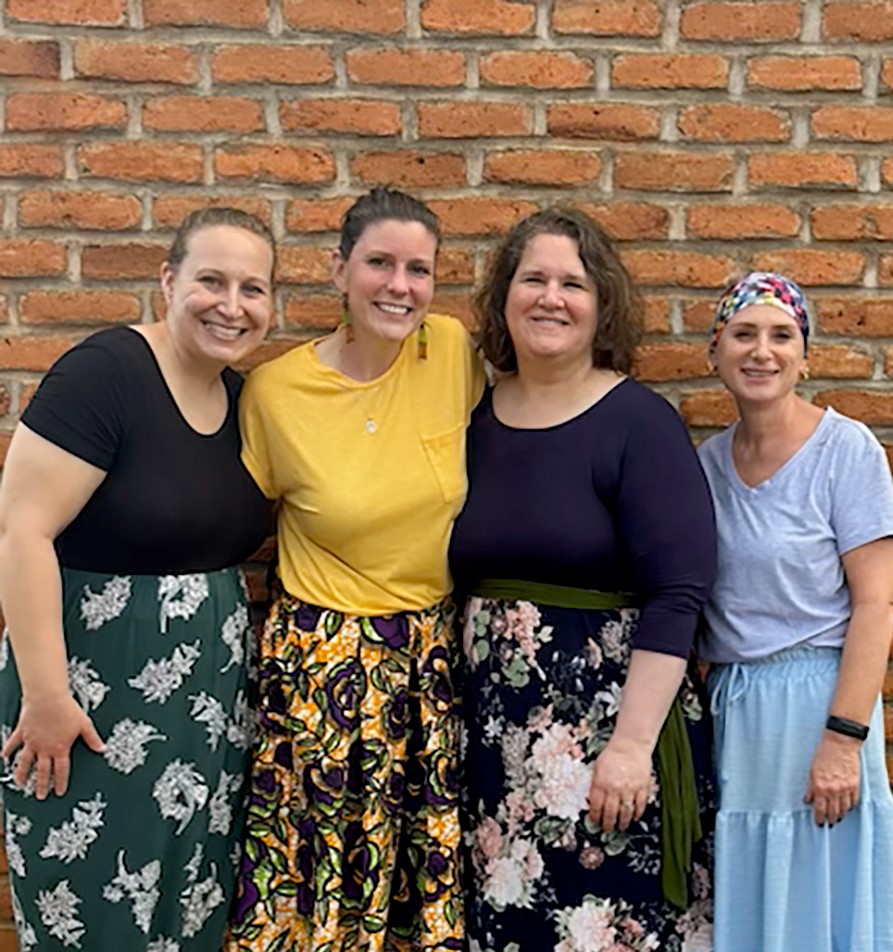1st in Region to Deploy Artificial Intelligence to Detect Colon Cancer
March 21, 2023

Gastroenterologist Shannon Tosounian, DO, in the GI Lab at St. Luke’s Carbon Campus, holding a scope equipped with the GI Genius. St. Luke’s is the first in the region to deploy the powerful artificial intelligence tool to help detect early signs of colon cancer.
One in 24 people will be diagnosed with colorectal cancer in their lifetime, and in just one recent year, 2021, there were 149,000 new cases in the country, leading to 52,980 deaths.
These sobering statistics explain why St. Luke’s University Health Network recently enhanced its capacity to detect colorectal cancer through the acquisition of the GI Genius endoscopy module – the first-to-market, computer-aided polyp detection system powered by artificial intelligence.
“Early detection of adenomas – or pre-cancerous polyps – gives us the chance to catch colon polyps before they develop into colon cancer, and to diagnose and treat colon cancer before it spreads,” said Dr. Noel Martins, Division Chief of Gastroenterology and Fellowship Clinical Professor. “Early detection is the best way to avoid bad outcomes, particularly because symptoms such as bleeding, abdominal pain and weight loss may not appear until it is too late.”
Scott Siegfried, Division Administrator for Gastroenterology at St. Luke’s, concurs. “I cannot underscore enough how important it is to be screened as soon as you are eligible, which is now 45 years old,” he said. “Having undergone one colonoscopy, which helped to identify and remove some adenomas, I can attest that it is so worth the effort. The prep is easy, and the procedure itself is quick and painless. The value you get in return for such a short-term inconvenience is immeasurable.”
Martins and Siegfried provide the day-to-day medical and operational oversight for gastroenterology and hepatology inpatient and outpatient services for the entire St. Luke’s network. With an Adenoma Detection Rate (ADR) of 42 percent – far exceeding the national benchmark rate of 25 percent – the gastroenterology team has been consistently successful “with the most important measure of colonoscopy quality that we have,” Martins said.
St. Luke’s new GI Genius endoscopy module is composed of hardware and software designed to highlight portions of the colon where the device detects a potential lesion, according to the Food and Drug Administration. Through the use of artificial intelligence algorithm techniques that identify regions of interest, the GI Genius system generates markers, which look like green squares and are accompanied by a short, low-volume sound. During the colonoscopy, the GI Genius tool superimposes these images on the video from the endoscope camera, signaling to the clinician that further assessment may be needed. This could involve closer visual inspection, tissue sampling, testing or removal, or ablation of (burning) the lesion.
The GI Genius module, Siegfried said, “only amplifies our ability. We already have incredibly talented physicians, and this just adds another set of eyes in the room. We are very fortunate to be the first in the region to have this technology, which was acquired through a grant program and recently installed. It’s another great tool in our toolbox.”
The GI Genius technology also offers the cohort of eight Gastroenterology Fellows currently training at St. Luke’s an opportunity to learn with and about this advanced tool “to help teach a next generation of physicians,” he said.
Patient access to quality care has also been enhanced through the incorporation of the Eyvazzadeh and Reilly Colon & Rectal Center into St. Luke’s earlier this year. The center, now named St. Luke's Colon & Rectal Surgery, has three board-certified physicians: Daniel J. Eyvazzadeh, MD, FASCRS; Daniel J. Bowers, MD, FASCRS; and W. Terence Reilly, MD, FASCRS. Building upon the legacy of their independent practice and with the strength of the St. Luke’s network, the practice will continue to provide state-of-the-art surgical methods and endoscopy techniques to patients throughout the network.
“We are so excited to have them as part of the St. Luke’s family,” Martins said. “We’ve worked closely with them for many years and now our ability to coordinate care for our patients is even easier. This is a big impact to our patients and communities we serve.”
Read More News
Latest News


April 17, 2025
SLUHN Employee Competes in Boston Marathon on Monday

April 16, 2025